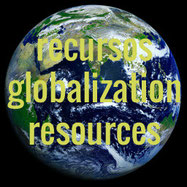
Ayer falleció Eric Hobsbawn, uno de los más grandes historiadores del siglo XX. Su trilogía La era de la revolución, La era del capital y La era del imperio constituye uno de los mejores análisis de la consolidación del capitalismo industrial en el siglo XIX y su transformación hasta la Primera Guerra Mundial. Especialmente brillante es el tercero, La era del imperio. La era de los extremos (1914-1991) me pareció menos conseguida: quizás uno pierde algo de perspectiva ante hechos vividos. De entre todas sus obras me quedo con Bandidos (1969), un brillante análisis del fenómeno del bandolerismo en el muy largo plazo.
Como historiador marxista, Eric Hobsbawm concebía la historia como progreso o evolución, en constante cambio. Su trabajo, por tanto, se iniciaba con la formulación de grandes preguntas sobre el cambio social, con una perspectiva de largo plazo. Esta manera de trabajar empezó a ser una cosa aislada tras el cultural turn que sufrió la disciplina desde la década de 1980. En una entrevista en 2008 (¡qué lucidez con más de 90 años!), Hobsbawn resumía muy bien la necesidad de hacerse grandes preguntas, y cómo la vuelta a la historia narrativa o a la historia cultural era la consecuencia lógica de no formular grandes preguntas:
"On the other hand, what is significant depends on what questions you ask about history. When the new people went back to political history, back to narrative history, they were all against asking the big questions. How does one society change into another? How did the Middle Ages change into…? Well if you’re thinking in terms of the big questions, of course if you like you can start with the word go, with human beings leaving Africa and spreading all over the world. How did they get from there to now? If you don’t ask any of these big questions there remain an enormous number of things which are fascinating, and some of which you may write about because you feel great empathy with them, and you can certainly write about them in a scholarly fashion, but they don’t help to answer the big questions. That is the view that my generation would have taken of it. I mean, that’s to say even the younger people who came up in the 1950s and 1960s."
 juancarlosrojo.com
Página web del Prof. Juan Carlos Rojo
Blog y recursos didácticos en Geografía e Historia
juancarlosrojo.com
Página web del Prof. Juan Carlos Rojo
Blog y recursos didácticos en Geografía e Historia












